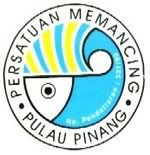Fishing First Aid : Dengue Fever
 "In 2005, dengue is the most important mosquito-borne viral disease affecting humans; its global distribution is comparable to that of malaria, and an estimated 2.5 billion people live in areas at risk for epidemic transmission. Each year, tens of millions of cases of Dengue Fever occur and, depending on the year, up to hundreds of thousands of cases of Dengue Haemorhagic Fever. The case-fatality rate of DHF in most countries is about 5%, but this can be reduced to less than 1% with proper treatment. Most fatal cases are among children and young adults."
"In 2005, dengue is the most important mosquito-borne viral disease affecting humans; its global distribution is comparable to that of malaria, and an estimated 2.5 billion people live in areas at risk for epidemic transmission. Each year, tens of millions of cases of Dengue Fever occur and, depending on the year, up to hundreds of thousands of cases of Dengue Haemorhagic Fever. The case-fatality rate of DHF in most countries is about 5%, but this can be reduced to less than 1% with proper treatment. Most fatal cases are among children and young adults."Source : CDC
Every year there is an outbreak of Dengue Fever here in Malaysia. This year it is a particularly bad strain, having caused about 7 deaths already. You can get Dengue twice, as there are different strains of the Dengue Flavivirus. I thought this might be relevant for Fishermen as we are exposed to mosquitoes especially in the evening. This article is on how to avoid dengue, not to go into the medical details of it.
TIPS for Avoiding Mosquito Bites
- Mosquitoes are attracted to things that remind them of nectar or mammal flesh. When outdoors, wear light clothing that covers most of the body, keeping as much skin and hair covered as practical. Avoid bright, floral colors. Khaki, beige, and olive have no particular attraction for mosquitoes. Wear light colors during the daytime, as dark clothing during daylight hours actually attracts the little buggers.
- They are also attracted by some body odors, and for this reason they choose some individuals over others in a crowd. Avoid fragrances in soaps, shampoos, and lotions.
- Many species of mosquito prefer biting from dusk until dawn. The problem is worse when the weather is hot or humid. Avoid playing outdoors during the peak biting times in your area.
- Try to stay away from still water. (hahaha for fishermen!)
- Use Insect Repellent on exposed skin when you go outdoors. Use an EPA-registered insect repellent such as those with DEET, picaridin or oil of lemon eucalyptus. Even a short time being outdoors can be long enough to get a mosquito bite.
- Clothing Can Help Reduce Mosquito BitesWhen weather permits, wear long-sleeves, long pants and socks when outdoors. Mosquitoes may bite through thin clothing, so spraying clothes with repellent containing permethrin or another EPA-registered repellent will give extra protection. Don't apply repellents containing permethrin directly to skin. Do not spray repellent on the skin under your clothing.
- Pediatric insect repellents with only 6-10% DEET are available.
- Some studies suggest that taking thiamine (vitamin B1) 25mg to 50 mg three times per day is effective in reducing mosquito bites. This safe vitamin apparently produces a skin odor that is not detectable by humans, but is disagreeable to pregnant mosquitoes (Pediatric Clinics of North America, 16:191, 1969). It seems to be especially effective for those people with large allergic reactions. Thiamine takes about 2 weeks before the odor fully saturates the skin.
- Garlic may work in the same way (except, of course, the odor is detectable by humans), but I have seen no scientific studies supporting this.
- Avoid perfumes when outside. Using hand creams and lotions with a sweet scent can also increase your risk of attracting mosquitoes, so go for the unscented varieties during mosquito season. Try using unscented soaps when showering, too. Even though they're rinsed off, the scent remains on your skin and attracts bugs.
- Mosquitoes are attracted to perspiration, heat, carbon dioxide, and lactic acid. All of these are produced after exercising, so avoid outdoor exercise during peak mosquito hours (at dawn and dusk). Our bodies also release lactic acid after eating certain foods, so avoiding outdoor dining during those hours is helpful, as well. Commonly believed mosquito-attracting foods include bananas (or other potassium-rich food items), and salty foods.
- What does not work?
Vitamin B, garlic, thiamine, and "ultrasonic" devices are NOT effective in preventing mosquito bites. (Means you can try la, but don't put too much trust in them)



1 Comments:
nice article about potassium...very informative and beneficial for me...thanks
By suzan, at 7:27 PM
suzan, at 7:27 PM
Post a Comment
<< Home